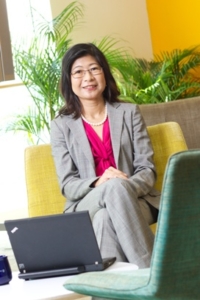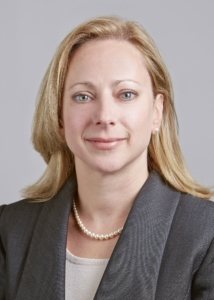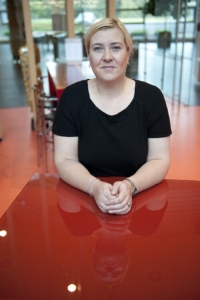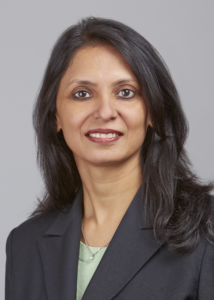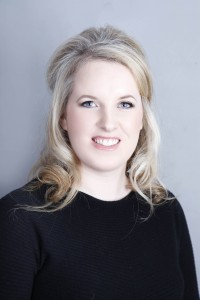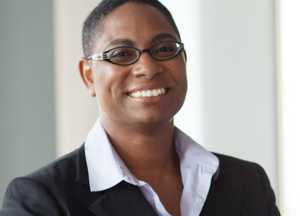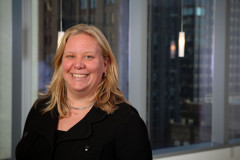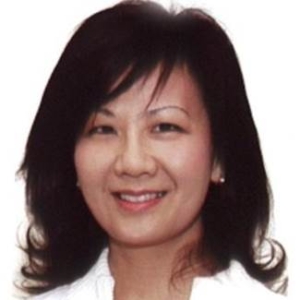 “The barriers to success for women in our profession are sometimes ourselves,” says the Vice-Chairman of PwC Singapore and the Markets Leader of PwC Asia Bin Hwee Quek. “We sometimes believe we cannot reach the pinnacle of our career. This is not always true. It is possible for those who desire it. These women tend to embrace change and always keep an open mind.”
“The barriers to success for women in our profession are sometimes ourselves,” says the Vice-Chairman of PwC Singapore and the Markets Leader of PwC Asia Bin Hwee Quek. “We sometimes believe we cannot reach the pinnacle of our career. This is not always true. It is possible for those who desire it. These women tend to embrace change and always keep an open mind.”
In her current position, Bin oversees all industries and sectors, both in Singapore and in the Asia Pacific Region, including financial services, health, technology, infrastructure and government. “I spearhead the markets and industries initiatives to enhance a high-performance culture and propel growth,” she says. “For each industry and sector, we aim to bring the best solution to our clients through our subject matter experts.”
Additionally she sits on the Global Markets Core Leadership Team which is charged with developing client solutions for the future. The Team identifies megatrends and determines how to help PwC win in the market, which is rapidly becoming more complex, transparent, interdependent and subject to continuous and accelerating digital disruptions.
“I feel privileged to work with talented people on projects ranging from statutory audit to restructuring, debt and equity financing and fraud investigation,” she says. “I am most proud when my team pulls together to deliver the best solutions for our clients and whenever our clients acknowledge our contribution to their success.”
As she has ascended through the hierarchy of PwC, she hasserved in various capacities including Asset Management Leader, Government Leader, Real Estate Leader and Human Resource Leader (Assurance).
With today’s rapidly changing world, full of new technology and disruptions, she is interested in how they work together to create new businesses and drive out old ones. In addition, she is intrigued by Big Data. “It has many secrets yet to be revealed,” she believes. “Data analytics will provide hindsights, insights and foresights to enable faster informed decisions for operational excellence and business growth.”
Advice from the Top
As Bin reflects on her career, she sees that she has always been more externally focused, thoroughly enjoying her work with clients and various government agencies. However, looking back, she believes she would have benefitted from spending more time with her colleagues to take advantage of increased opportunities to collaborate.
She encourages women in the industry to put themselves forward for different roles within their firms and in the network, advising that an overseas stint can greatly enhance work experience. And she believes that women should contribute to their community in areas where they are most passionate. “I strongly encourage everyone to make time in their busy schedule to contribute and to give back to our society,” she says. “Each little bit goes a long way.”
A Philanthropic Mindset
She puts that advice into practice, serving on a number of boards herself, including various Singapore Government statutory boards, such as The Housing and Development Board (“HDB”), where she was honored to receive the Public Service Award from the Singapore Government for her contribution to HDB. “It is humbling to know I have made a difference in the lives of my fellow Singaporeans.”
Other boards she has served on are those for Industrial and Services Co-operative Society and The National Volunteer and Philanthropy Centre, and she currently serves on the boards of Duke-NUS Graduate Medical School and Health Promotion Board, where she chairs the audit committees, and The Maritime and Port Authority of Singapore.
She also has volunteered her time for the prison ministry for the past 10 years, which stems from her belief that everyone deserves a second chance. Further, as president of the Singapore Anti-Narcotics Association (“SANA”), she is a firm believer in keeping Singapore drug-free. SANA is committed to empowering the pillars they have identified as the bedrock of a drug-free society: youth, family and the community. “Together, we can work toward creating a crime-free and drug-free Singapore,” she says.
In her remaining free time, she loves outdoor activities, including skiing, trekking, cycling, playing golf and running, having completed a marathon.
Many of her adventures include her husband and three children, who enjoy spending time together skiing, trekking and snorkeling. “I remember feeling a sense of achievement at the summit of Tiger’s Nest in Bhutan and am looking forward to trekking in Patagonia in September this year,” she says.
By Cathie Ericson

